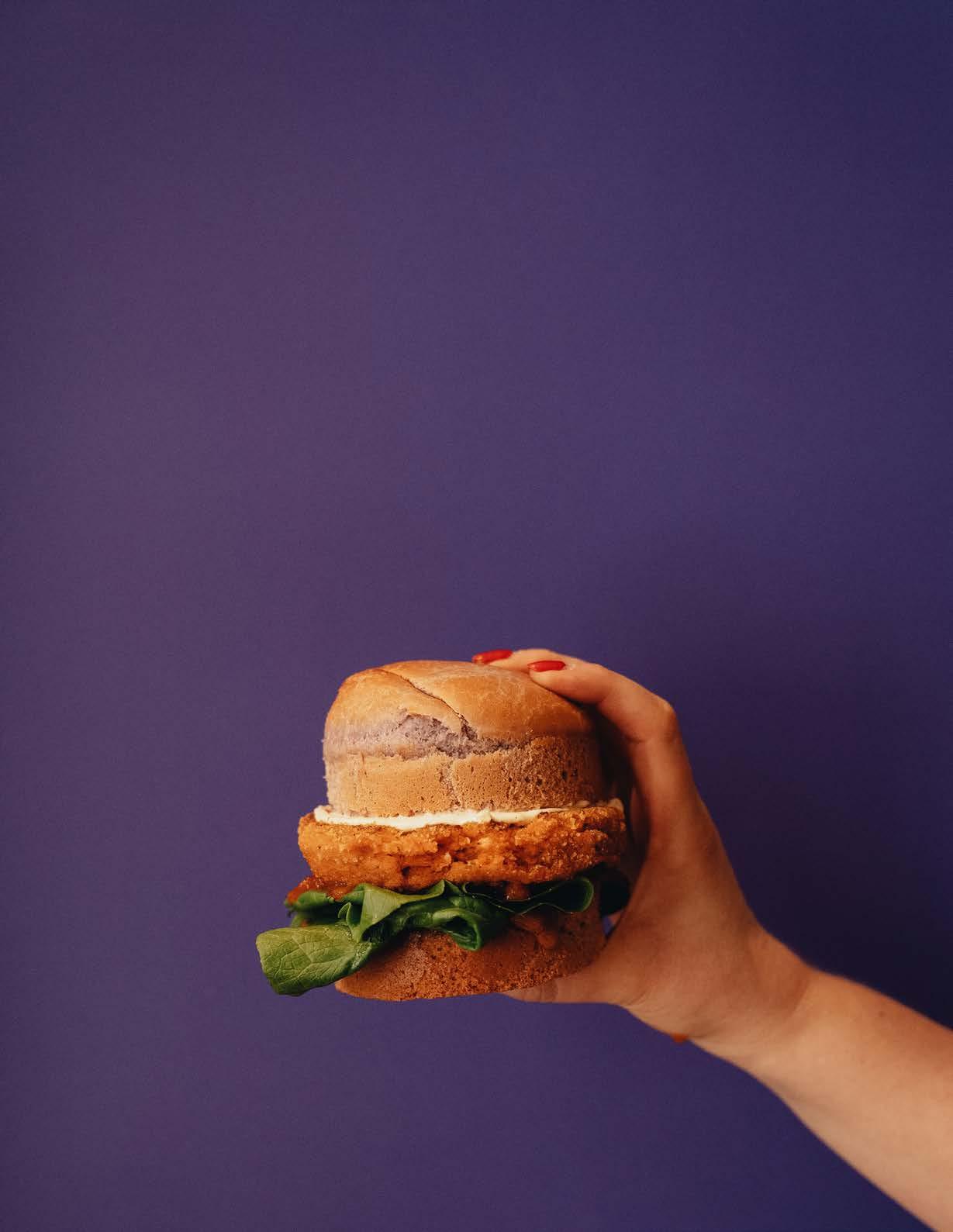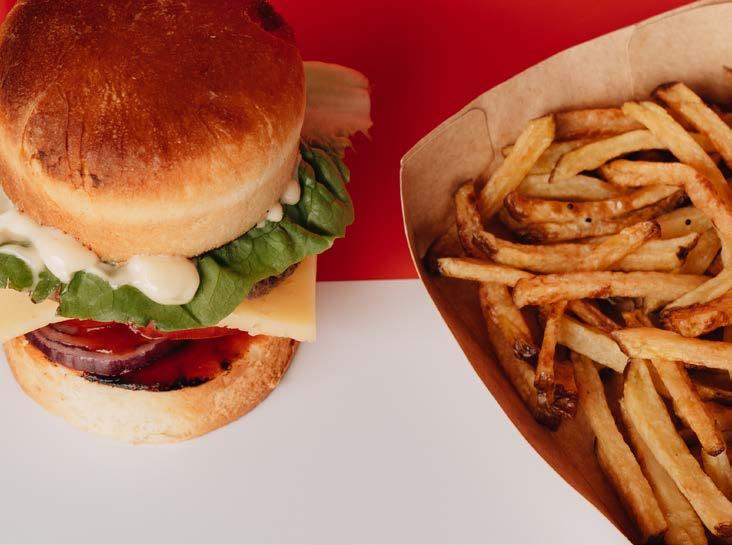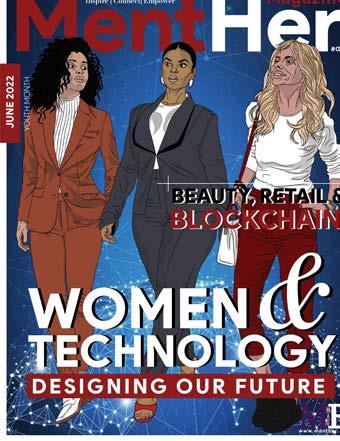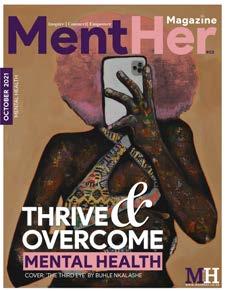
4 minute read
WELLNESS
FAST LIFE , When diet is wrong, medicine is of no use. When diet is correct, medicine is of no need .FAST FOOD
Kholeka Mkhize - Dietitian
Advertisement
Technology has become part and parcel of every woman’s lifestyle; there’s basically nothing we do without technology these days. Tech has contributed to many efficiencies in life, but has also made life more fast paced. This even in the way we order and consume food all the way up the production chain to how food is made (grown and processed). Conventional food production has quickly been replaced by advanced technological use of more precise robotic machinery to better our lives and improve convenience. These modern methods of food production have also slowly replaced human labour in the industry and lead to job losses that have affected lots of household’s employment and income of the older generation. On the other hand, it has created a new category of employment in the technology industry which supports the new generation and progression of lifestyle. It has made life easier for women as carers of the family especially with household chores such as; cleaning, washing and cooking which through automation have become quicker, more effective and time saving, so one can spend more time with family. However, the downside of technology is that it interferes with that family time, as more people spend their time on social media and barely communicate with people physically around them.
HOW HAS TECNOLOGY AFFECTED NUTRIENT INTAKE
Food technology is part of food science that deals with the production, preservation, quality control, research and development of food products. The modern industry is participating in more research to improve the quality and shelf life of food, however some of the preservatives, colouring and additives end up contributing to illnesses. Food eaten in this tech era is more processed and increased processing also affects the nutritional value of the food.
Most people prefer ready-made meals and take-away food compared to home cooked meals. We may enjoy the convenience of this efficiency, but we don’t often ask about the associated costs (i.e. the new risks presented). Processing methods present an increased risk of cancer, posed by cooking methods such as grilling, broiling, barbecuing and smoking of meat, which most processed foods undergo. Several investigations have shown the presence of mutagenic activity in food after frying and charcoal broiling.
HERE ARE SOME CONSIDERATIONS WHEN CHOOSING TO EAT FAST
1Most ready-made food contains a lot of salt, sugar, fat and has less fibre content.
2High salt intake may contribute to high blood pressure and renal diseases.
3High sugar intake may contribute to type 2 diabetes and obesity.
4Fat contributes to a lot of ailments seen today, including non-communicable diseases.
5The lack of fibre in food may contribute to digestive issues, cancers and immune diseases.
6Most people live a sedentary lifestyle currently, because of technology and that has escalated the rate of lifestyle disease than ever seen before - even affecting children. The electronic gadgets that are used during these lazy time e.g. cellphones, tablets, computers etc. has been shown to be the main source of brain exposure to radiation, increased sleep disorders and memory impairments, which can also be attributed to microwave radiation. 7Cooking using microwave stoves has become very useful and convenient in this lifetime, bearing in mind that microwave stoves also use radiation, which can be absorbed by organisms like human beings and has been associated with a series of physiological and functional changes. Many intricate electrical activities occur in the central nervous system, which are vulnerable to electromagnetic radiation.

8It has become a norm and easy way out of cooking to order food that is delivered at our door-step. This method of a food chain can pose a lot of health risks as there are no proper environmental protocols put in place for house-hold food deliveries by the Department of Environmental Health, e.g. proper hand washing before collection of food from restaurants by drivers; cleaning of the food carrier box on the motor-cycle and issues of contamination during transportation. The skill (and art) of cooking is slowly lost as more and more people rely on ready-made food. It is still crucial to teach the young generation and children the conventional way of life to ensure survival in cases of emergencies e.g. lock-down, uncontrolled load-shedding, unforeseen life threatening situations and good old clean living.
NUTRITIONAL RECOMMENDATION IN THIS TECHNOLOGICAL PERIOD
• Choose a diet rich in a variety of plant-based foods. • Eat plenty of fresh vegetables and fruits. • Maintain a healthy weight and be physically active. • Drink alcohol only in moderation, if at all. • Select food low in salt and fat. • Prepare and store food safely. • Consider healthier alternatives in food preparation such as; boiling, poaching, steaming, braising, baking and roasting.
Choose food wisely for health’s sake and longevity.


SUBSCRIBE




Inspire | Connect| Empower
#04
DECEMBER 2021 MARCH 2021 LAUNCH

EDITION
JUNE 2021 YOUTH MONTH
EDITION
OCTOBER 2021 MENTAL HEALTH
EDITION
DECEMBER 2021 SOCIAL IMPACT
EDITION
MARCH 2022 LEADING & SHAPING
EDITION










